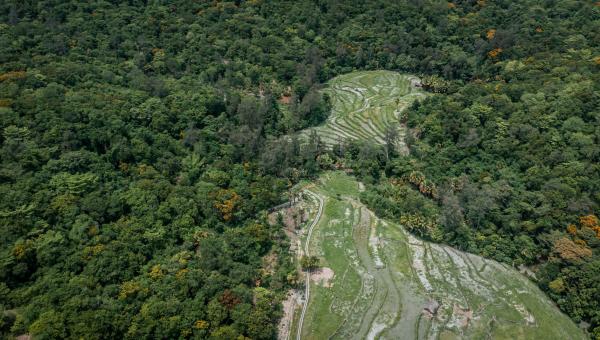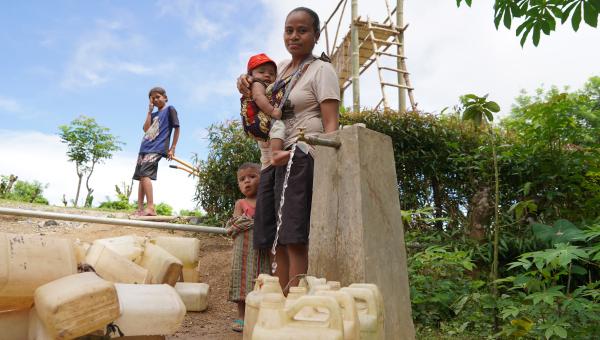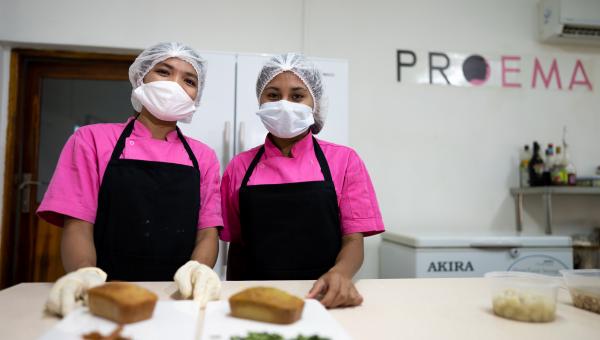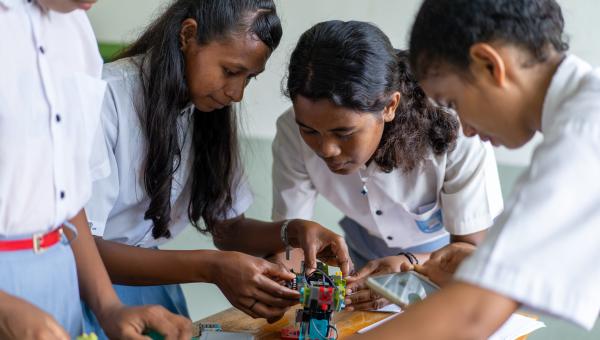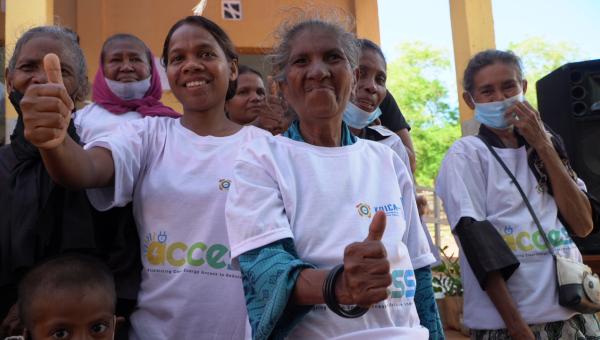Community Infrastructure for Resilience Project (CIReP)
Summary
Community Infrastructure for Resilience Project (CIReP) aims to safeguard rural communities by strengthening the resilience of community infrastructures, ensuring access to basic services such as health, education, markets, irrigation, water, and sanitation, which are vital assets to enhance people’s lives and livelihoods.
The CIReP supports the construction/ rehabilitation of 40 community infrastructures, including water systems, public toilets, bridges, maternity health centre, rainwater harvesting systems, gabion/retaining walls, and community centres, in the Municipality of Bobonaro, Ermera, Liquica, and Oecusse. A total of 16000 households, and 75000 (47% women) individuals in the four Municipalities will benefit from the project activities.
The project will contribute to the achievement of the Sustainable Development Goals (SDGs), particularly in the areas of gender equality (SDG 5), clean water and sanitation (SDG 6), Climate Action (SDG 7), and decent work and economic growth (SDG 8).
Background
While around 65 % of non-poor households in Timor-Leste have access to improved sanitation facilities, nearly half of the poor do not. According to the SDG 6-based analysis of the WASH data by WHO and UNICEF 2021, sanitation is particularly a challenging issue as 43% of the total population lacks access to basic sanitation and 14% of the total population has difficulties to obtain drinking water, which even goes up to 19% in rural areas. The access to basic services was further weakened by the flash flood of 2021, large volumes of surface water and debris damaged public facilities, such as roads, bridges, retaining walls, and other basic amenities.
In addition, employment opportunities are limited for increasing income as the public sector is the biggest employer while the private sector is extremely constrained, and the economy is not diversified. According to the 2018 Labour Market Outlook, 20.3% of the youth population aged 15-24 were not in employment, education, or training, and 78% of the people between the age of 15-64 were not employed of which around 36% were youth between 15-24. The situation of poverty and lack of employment opportunities were further exacerbated by the impact of the COVID-19 pandemic that started in early 2020.
Project Outcome
The project aims to:
l support communities to build various kinds of community infrastructures that will enable them to have better access to various kinds of services such as health, education, markets, irrigation, water, and sanitation that have a direct impact on people’s lives and livelihoods
l create short-term employment for the communities by engaging them in construction and rehabilitation work as skilled or unskilled laborers.
Gender Equality
The CIReP ensures gender-equal job opportunities and women’s meaningful participation in the decision-making process throughout the construction/rehabilitation work and community-based activities.

 Locations
Locations
